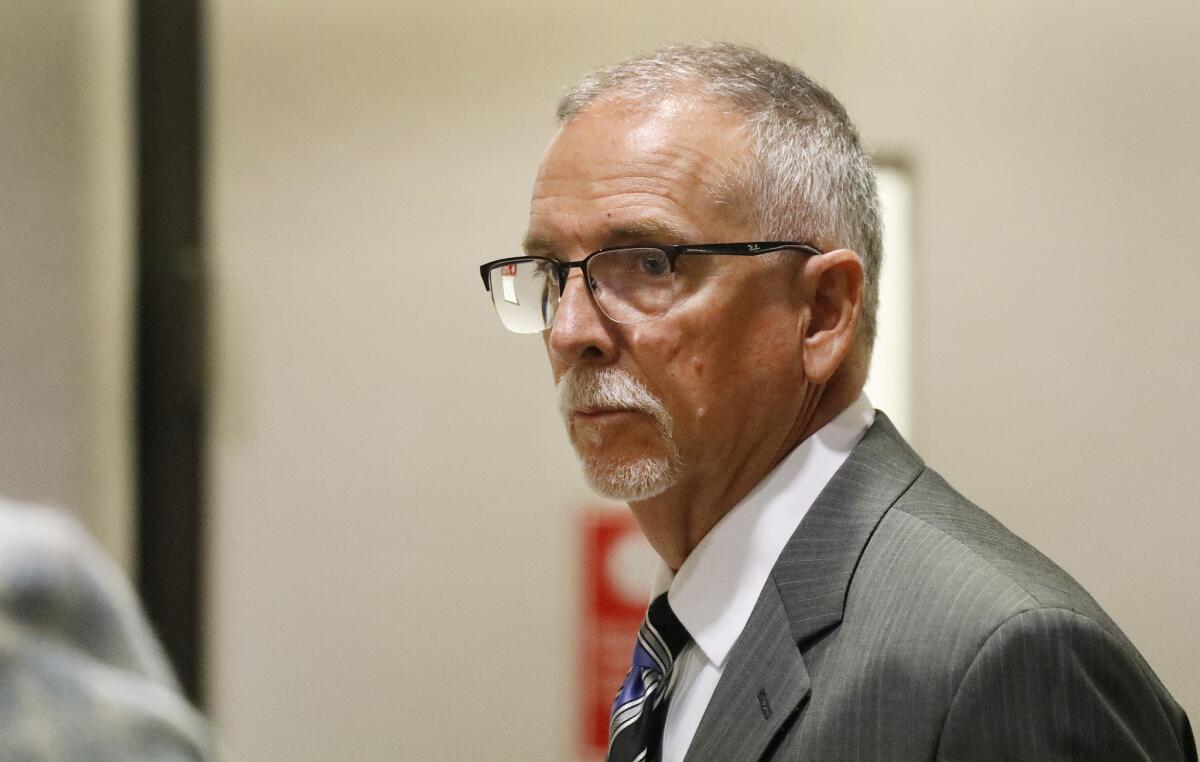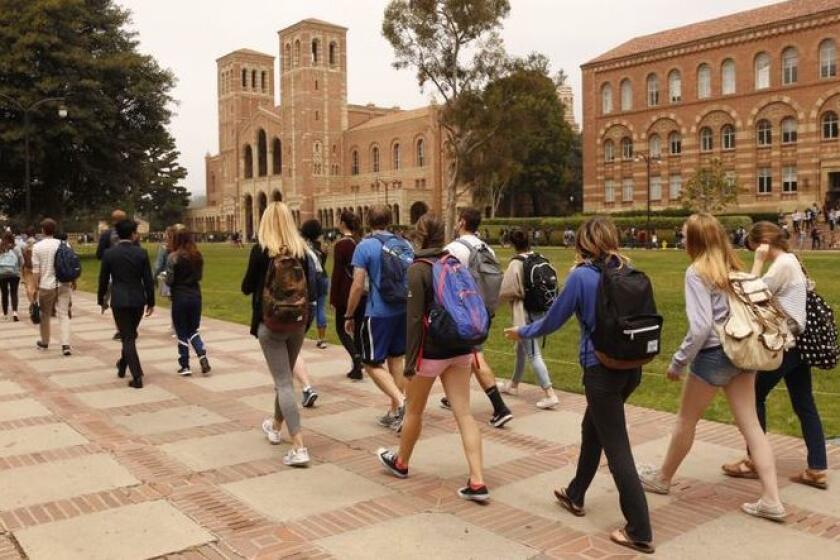Lawmaker urges UC regents to reject $73-million settlement in doctor’s case, says it’s unfair to scores of women

- Share via
A state lawmaker who wrote the law allowing accusers of a UCLA gynecologist more time to sue is advising University of California regents to reject a proposed $73-million class-action settlement, saying it will curtail many of the alleged victims’ rights.
The proposed settlement was reached last month by attorneys for the UC system and lawyers for seven women who said they were sexually battered by Dr. James Heaps while they were patients at UCLA.
Heaps, 67, has pleaded not guilty to criminal charges that he sexually abused seven patients. More than 200 women have accused him in the civil litigation of sexual assault and sexual misconduct from 1983 to 2019, during his tenure at the UCLA student health center and UCLA Medical Center.
UCLA came under public scrutiny Monday over its handling of a former staff gynecologist who has been charged with sexual battery and exploitation during his treatment of two patients at a university facility.
State Assemblywoman Buffy Wicks (D-Oakland), in a letter to the UC Board of Regents on Dec. 15, said the settlement was “negotiated in secret without notice or input from the more than 200 women who have filed suit against UCLA.” Wicks said the deal was designed to undermine the intent of Assembly Bill 3092: The legislation, which takes effect Jan. 1, will give survivors until the end of 2021 to file lawsuits. Wicks noted that the number of alleged victims could number 6,600.
Wicks noted that “survivors gave heart-wrenching testimony as they pleaded for the right to decide whether to confront their abuser.”
“The proposed settlement,” she said, “would undermine AB 3092 by dramatically shortening the amount of time a victim may file a case against UCLA and Dr. Heaps.”
The regents are next scheduled to meet Jan. 20.
This settlement, Wicks noted, is similar to a class-action settlement in the sexual abuse case against the University of Southern California and its former gynecologist George Tyndall that offered as little as $2,500 in compensation. The average compensation was $11,000. She said both settlements were negotiated by the same team of defense lawyers. In the USC settlement, a one-year statutory window provided by AB 1510, passed in 2019, was shortened to 120 days.
“Survivors of sexual abuse at UCLA who do not opt out of this class-action settlement,” she added, “will lose their rights to question Dr. Heaps, UCLA administrators and staff under oath.”
John Manly, a prominent sexual abuse attorney who represents 112 alleged victims of Heaps, said his clients wouldn’t be part of the settlement, which was crafted by another law firm. Manly says the class-action deal denies victims their day in court and is a way institutions seek to quickly conclude a scandal without properly compensating the victims. “This is a move to avoid real accountability in a court of law,” Manly said Monday. “I expect the regents will hear from a lot of victims at their next meeting.”
According to UCLA, Heaps treated about 5,000 patients for whom the institution has records and about 1,600 others for whom it does not have details. Heaps did not admit any wrongdoing or contribute toward the $73 million in the agreement, but he did sign off on the settlement’s terms. His attorney Leonard Levine said he absolutely would contest all the allegations and continued to be supported by many patients whose lives he saved. A preliminary hearing in the criminal case was postponed earlier this month. Heaps now faces 20 felony counts and is charged with sex crimes spanning a period from 2011 to 2018. The charges include sexual battery by fraud, sexual exploitation of a patient, and sexual penetration of an unconscious person.
Since the doctor’s arrest in June 2019, more than 200 women have come forward, accusing Heaps of subjecting them to sexually inappropriate comments, touching them sexually during exams without wearing gloves, and simulating intercourse with an ultrasound probe. Heaps’ medical license was suspended last year after he pleaded not guilty to the criminal charges.
UCLA officials have acknowledged they received complaints about Heaps in 2017, and he was placed on leave the following year. But the school made no public statements about Heaps’ conduct upon his retirement in 2018, when it declined to renew his contract, and alerted the college community only after reports of his arrest last year.
Elizabeth Kramer, the attorney for the plaintiffs, said the settlement would create a $73-million fund for survivors, with automatic payment of $2,500 to settlement class members, who would receive the money without having to take further action.
The agreement would in some circumstances allow for awards of more than $250,000. Kramer previously told the Los Angeles Times that it “requires critical institutional reforms at UCLA to protect patients and prevent similar abuse from happening again.” As part of the deal. UCLA agreed to create a new process for investigating allegations of sexual assault, harassment and misconduct. The university must implement a formal chaperone policy for patients. It must also initiate a training program on boundaries and ensure that patients are informed about how to report misconduct.
There is a provision in the provisional settlement that allows UC regents to pull out of the deal if more than 250 patients decide to pursue litigation outside the agreement. Manly said he suspected that number could be reached. In 2019, UC regents paid $2.25 million to one female patient who alleged that Heaps sexually assaulted her, and $1.3 million to a nurse practitioner he was accused of sexually harassing,
More to Read
Sign up for Essential California
The most important California stories and recommendations in your inbox every morning.
You may occasionally receive promotional content from the Los Angeles Times.












